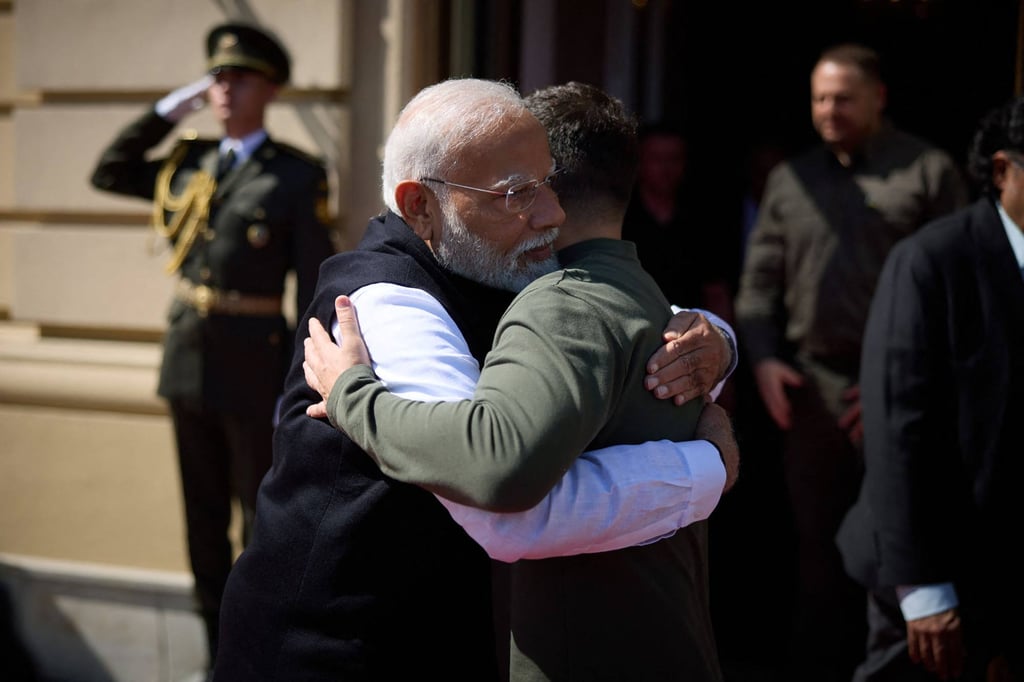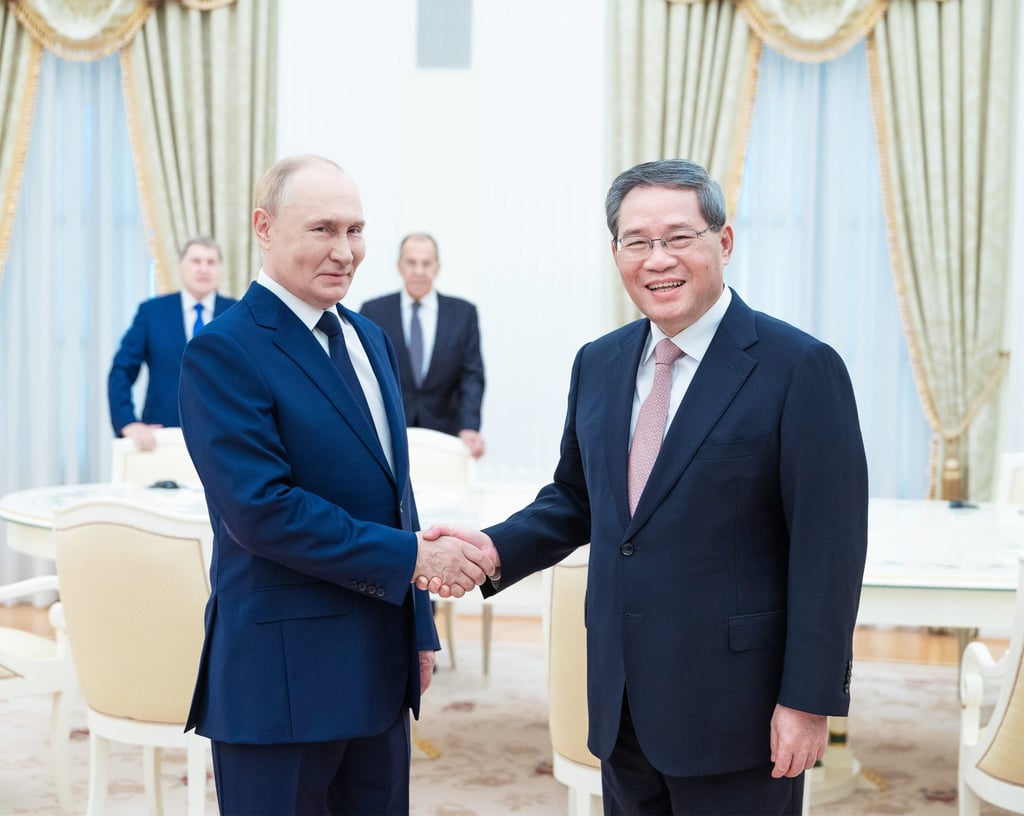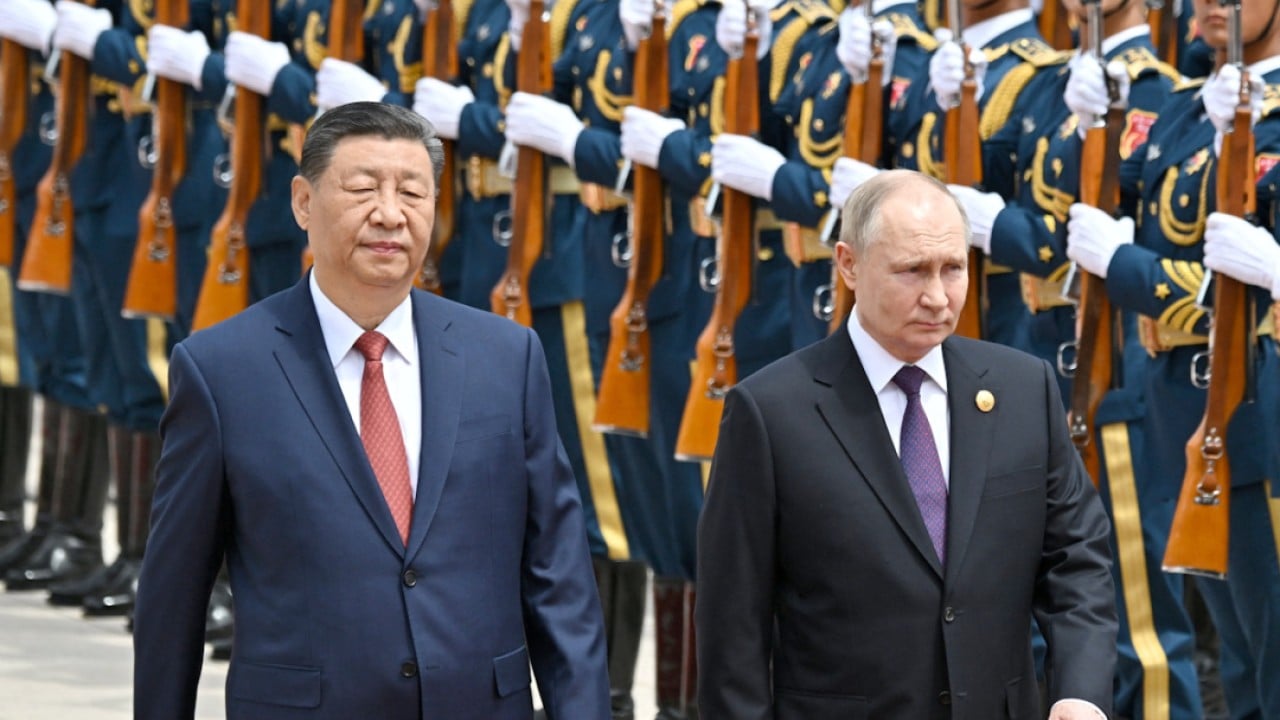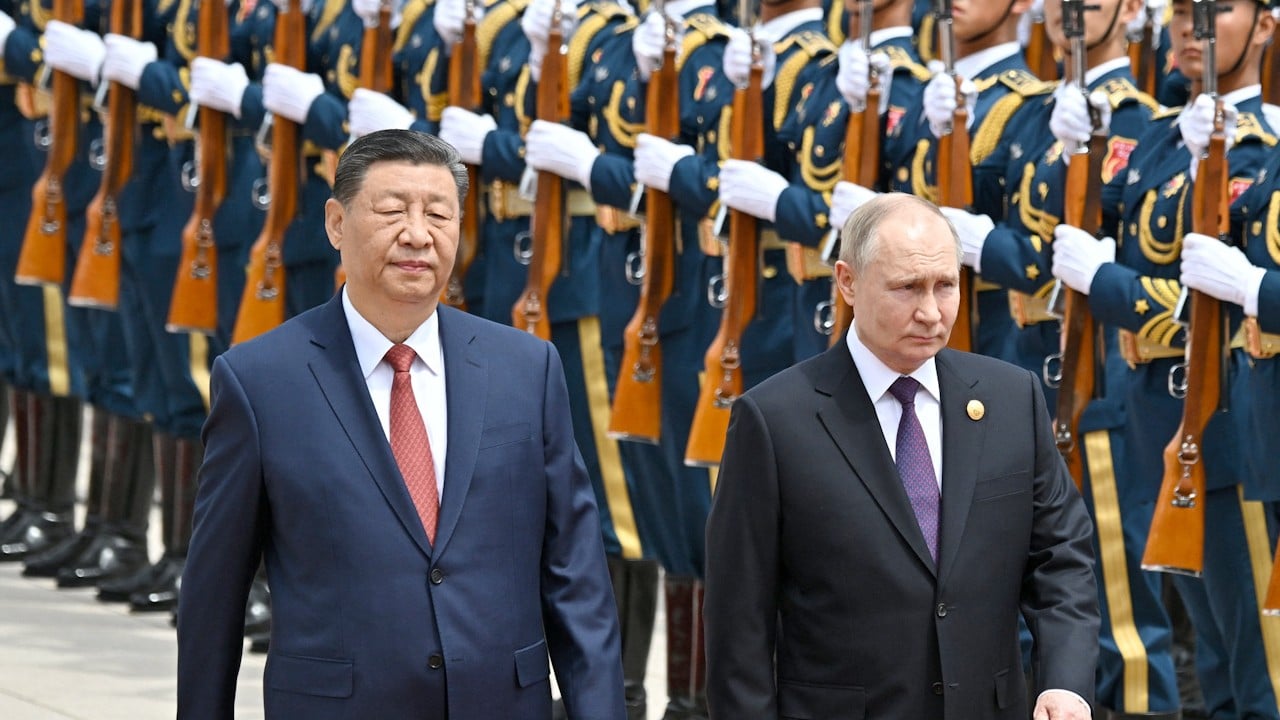After Indian Prime Minister Narendra Modi met Ukrainian President Volodymyr Zelensky on August 23 in Kyiv, the media played up photographs of Modi giving Zelensky his traditional bear hug. Zelensky said on X (formerly Twitter) that with Modi’s first visit to Ukraine as prime minister “history was made”, and that India supports “Ukraine’s independence, territorial integrity and sovereignty”.
While this might suggest Modi’s visit to Kyiv was a case of India supporting Ukraine in the festering war that is now in its 30th month, Modi himself was less direct on India’s position on Russia’s aggression. He said: “We have stayed away from the war with great conviction. This does not mean that we were indifferent. We were not neutral from day one, we have taken a side, and we stand firmly for peace.”
Modi’s visit is an extension of India’s deft and delicate diplomatic balancing act since Russia invaded Ukraine in February 2022, an act Moscow described at the time as a “special military operation”.
India has steadfastly refrained from criticising Russia for its actions but has also upheld international law and the United Nations Charter, urging both sides to engage in dialogue and diplomacy to end the conflict. This was the gist of Modi’s message; the subtext was the need to assuage US concerns that New Delhi has been uncritically pro-Russia.

The Kyiv trip followed Modi’s July visit to Moscow, where his embrace of Russian President Vladimir Putin elicited considerable criticism. At the time, Zelensky caustically wrote: “It is a huge disappointment and a devastating blow to peace efforts to see the leader of the world’s largest democracy hug the world’s most bloody criminal in Moscow on such a day”, referring to a Russian attack on a children’s hospital in Kyiv the day Modi arrived in Russia.
When Modi was in Kyiv, two other high-level political visits added to the kinetic geopolitical framework in which Russia’s invasion of Ukraine is playing out. Indian Defence Minister Rajnath Singh was in Washington at the same time, and Chinese Premier Li Qiang was concluding his visit to Moscow and Belarus. India and the United States signed important defence agreements during Singh’s visit, adding tangible content to an already robust military supplies relationship and this would be of relevance to Beijing.
For Delhi, Li’s reiteration in Moscow that the China-Russia friendship was “solid, strong and unshakeable” and had “withstood international turbulence” would have salience in the context of the complex India-China-Russia triangle. Joining these dots provides an instructive perspective on the multidimensional chess game being played at the Asian and global levels since the fighting in Ukraine began.

Both China and India have a special relationship with Russia that goes back to the Cold War decades, when the overarching US-Soviet Union bipolarity defined the global strategic framework. In the latter phase of the Cold War, China moved into the US camp and India leant more towards the Soviet cluster.
After the Cold War ended, both Asian giants rewired their bilateral relationship with a geographically shrunken and economically weaker Russia. Today, US-China adversity defines the major power relationship.
The US withdrawal from Afghanistan in 2021 led to a dilution of US primacy on the global stage. The wars that followed – Ukraine in 2022 and Gaza in 2023 – have resulted in a wobbly global strategic framework where the major powers and the UN Security Council have been rendered largely ineffective in ensuring global peace and stability.
India and China have sought to walk a fine line in relation to the war in Ukraine by upholding international law in a couched manner but have not joined the list of countries publicly denouncing Russia’s actions. This might have created the appearance of Delhi and Beijing flying with the doves, but in fact they are maintaining a solitary, owl-like perch to protect their long-term interests.
While India’s orientation is described as a case of exuding strategic autonomy – an extension of its policy of non-alignment – the carefully calibrated Chinese position has been referred to as the “Beijing straddle”.
Both countries have nurtured their Russian linkage in the form of oil imports and a bilateral trade and military relationship, but they have been careful not to put themselves at risk of US sanctions. Concurrently, both have sought to project themselves as the voice of the Global South, the disparate collective of developing nations which have been most adversely affected by the war in Ukraine because of the disruptions in the global food and fertiliser supply chains.
Modi’s visit to Kyiv was largely symbolic. The substantive element is in the multilayered signalling at the global level, in the Eurasian context and to a domestic audience. Neither India nor China can enable an effective peace process in the Ukraine war without earnest US involvement, and this will be determined by the outcome of the November US presidential election. Victory for former president Donald Trump could lead to unpredictable policies.
In the interim, both India and China are preparing for the Brics summit in Kazan, Russia, in October. How the participants – including the grouping’s founding members Brazil, Russia, India and China – frame the Ukraine war will provide some clues about the run-up to the third anniversary of a conflict that has jolted the post Cold War certitude about no wars in Europe. Abiding peace remains elusive against the harsh reality of a bloody war.
Commodore C. Uday Bhaskar is director of the Society for Policy Studies (SPS), an independent think tank based in New Delhi



